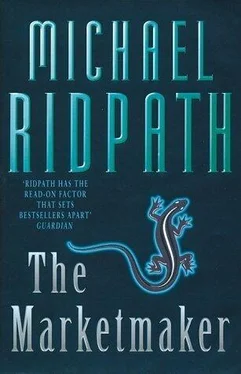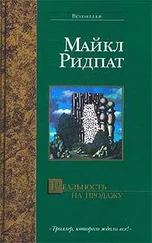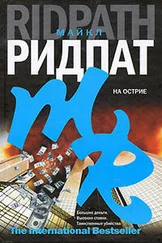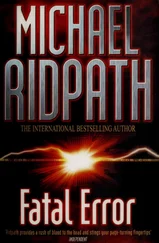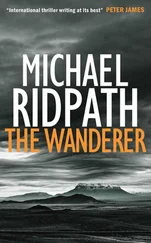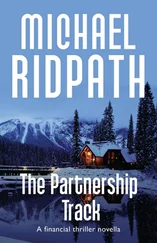Cordelia sighed, for the first time letting the emotion show. ‘Do you know what Euclides wants to be when he grows up?’
I shook my head.
‘A policeman.’
By the time we reached the car, I was hot, sweaty, dirty and tired. I was also profoundly dispirited. I felt sick.
‘You know your favela deal isn’t going to change that,’ I said. ‘A few roads and a lick of paint won’t help those kids.’
Isabel sighed. ‘I know. But it’s a start. And we have to start somewhere.’ She looked back up the hillside through the smoked windows of the car. ‘Deep inside the soul of this country, there is a disease. It’s some kind of brutality. It’s like a virus. It replicates itself through generations, from child to drug dealer to policeman to child. Cordelia deals with its symptoms. I’d like to think that something like the Favela Bairro project deals with its causes. But after seeing kids like Euclides I just feel like giving up. Sometimes I wonder why I shouldn’t just ignore the problem like everyone else. But we have to try. We absolutely have to try.’
I recalled the tough little boy with the big smile, and tried to imagine what adulthood would hold for him. If he ever made it that far.
‘Euclides is a funny name for a kid, isn’t it, anyway?’
‘Brazilians can be very imaginative in naming their children,’ Isabel replied, ‘especially in the favelas. Cordelia looks after a skinny five-year-old called Marcos Aurélio.’
I smiled briefly at this, but only briefly. The favela had depressed and angered me. How could something like that exist in a supposedly civilized country like Brazil? How could so many fabulously wealthy people live so close to such poverty? You couldn’t really blame the Brazilians — indeed many, like Cordelia and Isabel, were doing their best. Yet I was still angry with them, and angry with myself as well for accepting what I saw around me. But what could I do? What could anyone do? I longed for the simple answers of my more naïve past.
We drove on out of the favela, and into a green suburb of white houses hiding behind high walls and electronically laden iron gates.
‘I admire your sister,’ I said.
‘I admire her. And I love her. But I think she’s stupid. Stupid!’
I glanced over to Isabel. Her cheeks were flushed. ‘I know she’s doing good, a lot of good. But she’s going to end up dead. God, I hope she gives it up when she has the baby.’
‘Do you think one of the kids will kill her?’
‘No, not them. She’s a sitting target to be kidnapped. That’s a popular sport here in Rio. And you heard all that stuff about the police and the death squads. How do you think they feel about their victims escaping? Cordelia’s had death threats. They’ve tried to burn down the shelter.’
‘But she won’t give up,’ I said. I’d seen the determination in Cordelia’s eyes.
‘No,’ said Isabel. ‘She says that they wouldn’t dare do anything to her. Because of who our father is, and the high media profile she has, it would be counterproductive for the death squads to do anything. It would start a public outcry against them.’
‘Do you think she’s right?’
A tear glistened in the corner of Isabel’s eye. ‘I pray she is. But one day some off-duty policeman is going to decide that enough is enough.’
‘Can’t your father stop her?’
‘No one can stop her. Not him, not her husband. Don’t get me wrong. If she wasn’t my sister, I’d think she was doing a tremendous thing. But she is my sister...’ Isabel rubbed her eye.
‘I think I would be very proud of her if she were mine,’ I said carefully.
Isabel glanced at me for a moment, and gave me a small smile.
‘Um, Isabel?’
‘Yes?’
‘Would you have dinner with me tonight?’
Isabel met me in the lobby of the hotel wearing the simple black dress she had worn when she had gone out with her friends a couple of nights before. It suited her perfectly, complementing the smooth graceful glide of her body as she walked.
‘Let’s have a drink by the beach,’ I said.
‘Fine. Lead the way.’
Outside, the Avenida Atlântica was lined with hookers in skimpy tops and tight shorts leaning against the backs of parked cars, hoping to entice passing trade. We stopped outside one of the many little kiosks that lined the edge of the sand and ordered a couple of beers.
We sat and watched the world go by. We exchanged a few words, but it was difficult. I wasn’t sure whether Isabel was shy, or being evasive, or both.
A little boy of about four came up and stood beside us, offering us chewing gum. He had a delicate face, and large brown trusting eyes. ‘Não, obrigado,’ I said, and tried to shoo him off, but he took no notice. Then Isabel spoke some sharp words of Portuguese to him. Wordlessly he turned away from us and approached the next table. The barman left his post, clapped his hands and sent the child on his way.
We fell silent. The boy was Oliver’s age. I wondered if he would turn into another Euclides, a twelve-year-old hit-man with attitude.
Just then a woman with a puffy face and dyed blonde hair, who had been drinking a caipirinha sloppily at the table next to us, staggered to her feet. She lurched a few yards and threw up on the sand.
‘Let’s go,’ said Isabel. ‘I knew there was a reason I preferred Ipanema to Copacabana.’
We ended up at a fish restaurant just back from Ipanema beach. It was crowded and lively, with a menu I couldn’t understand but wine I could.
‘I liked your father,’ I said. ‘He’s a nice guy.’
‘Yes, he is. He just drives me crazy sometimes.’
‘Did you always want to be a banker like him?’ I asked, pouring her a glass of wine.
She glanced up at me. Her large liquid eyes considered me, weighing up how much to tell me. I held her gaze, although it was difficult to maintain a dispassionate expression rather than just stare.
Then she gave me that quick smile, and replied, ‘No. I hated banking when I was a student. I thought the last thing I would ever do would be to become a banker. I was sickened by what I saw around me. Poverty surrounded by wealth. So I wanted to do something about it. Attack the root causes, not just treat the symptoms like Cordelia.’ She was relaxed now, talking much more freely. ‘You know how it is when you’re twenty. You think that if only the world knew what you knew, then it would be a better place. So your job is just to explain to everyone how stupid they are.’
‘I know just what you mean,’ I said. ‘I used to be convinced that if the government ran the economy for the benefit of all the people, not just the rich gits, everyone would be better off. Then I went to the Soviet Union for two years. It was quite difficult to stay a socialist after that. In the end I just gave it all up and read books instead.’
‘I was fascinated to hear you talk to my father about that,’ Isabel said. ‘I mean I like reading books, but you’re in love with them. Just like Papai.’
‘Yes, I do love literature. Especially Russian literature. It seems to speak directly to the soul. Economics is all bullshit. It’s all about understanding money, and no one ever gets the right answers anyway. But when I read a poem by Pushkin, I feel that I have glimpsed some deeper truth about humanity. And I can read the same poem again and again, and learn something new each time.’
I had always loved reading. When I was a child, I had friends enough to play with outside the house but no one within its four walls. So I read. It became more than just a pastime, or even an escape into an imaginary world. Books became my security, my family, my home.
Читать дальше
